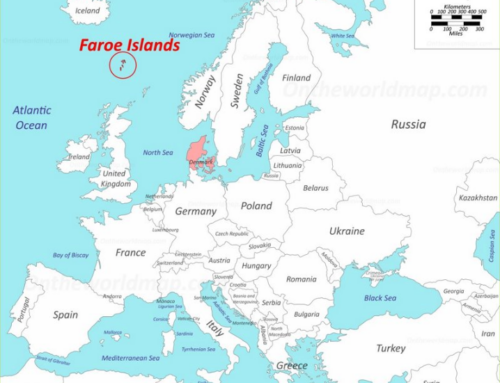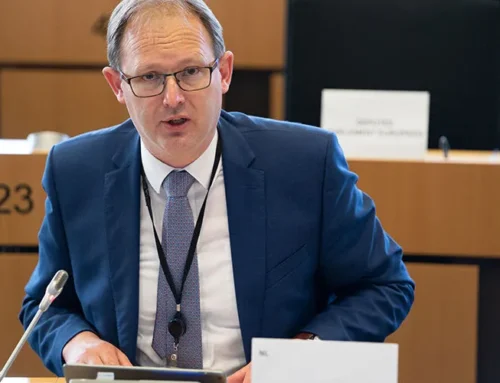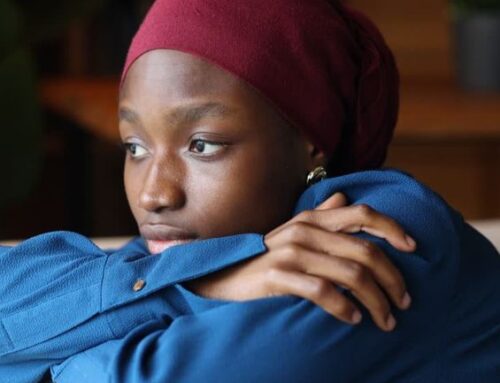Human rights groups chastise UN abortion advocacy
Since Donald Trump became U.S. president in January 2017, he has vowed not to support the global abortion industry through American taxpayer funds. Since last October, his administration has ramped up its criticism of several United Nations efforts to promote abortion through various declarations and policies.
Last year, Health and Human Services Secretary Alex Azar called for the term “sexual and reproductive health” – a term that includes abortion – to be deleted from several different UN declarations. On May 18, John Barsa, acting director of the United States Agency for International Development (USAID), sent an open letter to UN Secretary-General António Guterres, urging him to ensure the UN will “stay focused on life-saving interventions” and remove references to “sexual and reproductive health and its derivatives” from the Global Humanitarian Response Plan on COVID-19.
Guterres’ spokesman Stéphane Dujarric responded to Barsa’s letter saying, “any suggestion that we are using the COVID-19 pandemic as an opportunity to promote abortion is not correct.” Dujarric added that while supporting life-saving health care, “we do not seek to override any national laws.”
And then last month, the Working Group on discrimination against women and girls at the Special Procedures of the UN Human Rights Council issued a statement fighting back against the U.S. The statement criticized several U.S. states for declaring abortion a non-essential service during the COVID-19 quarantine that shut down countless businesses, churches, and charities, beginning in March.
In the statement, the Working Group complained that “some U.S. states appear to be manipulating the COVID-19 crisis to curb access to essential abortion care,” and named Alabama, Arkansas, Iowa, Louisiana, Ohio, Oklahoma, Tennessee, and Texas as states that declared abortion not an essential service. “We regret that the above-mentioned states, with a long history of restrictive practices against abortion, appear to be manipulating the crisis to severely restrict women’s reproductive rights,” said Elizabeth Broderick, vice-chair of the Working Group. “This situation is also the latest example illustrating a pattern of restrictions and retrogressions in access to legal abortion care across the country. We fear that, without clear political will to reverse such restrictive and regressive trends, states will continue pursuing this pattern.”
Those eight states insisted that medical resources be reserved for health care workers battling the pandemic. Some abortion facilities abided by the orders, while others sued their respective states to re-open.
On behalf of the Working Group, Broderick also said, “abortion care constitutes essential health care and must remain available during the COVID-19 crisis. Restrictions on access to comprehensive reproductive health information and services, including abortion as well as contraception, constitute human rights violations and can cause irreversible harm, in particular to low-income women and those belonging to racial minorities and immigrant communities.”
The Working Group also said it was “extremely concerned” by Barsa’s letter to Guterres asking that references to “sexual and reproductive health and its derivatives” be removed from the Global Humanitarian Response Plan on COVID-19. It stated: “We reiterate that sexual and reproductive health services, including access to safe and legal abortion, are essential and must remain a key component of the UN’s priorities in its responses to the COVID-19 pandemic. Removing references to sexual and reproductive health from the HRP will have devastating consequences for women worldwide. It will seriously undermine the international community’s joint effort to respond to women’s health needs in this time of crisis.”
The Working Group’s statement reflected the views of five independent “experts:” Meskerem Geset Techane (an Ethiopian lawyer and High Court judge, and a current appointment as associate scholar at the Women’s Human Rights Education Institute, University of Toronto); Elizabeth Broderick (a long-time Sex Discrimination Commissioner in Australia); Alda Facio (a founder of the Women’s Caucus for Gender Justice at the International Criminal Court); Ivana Radačić(a part-time lecturer at the University of Zagreb, focusing on women’s rights); and Melissa Upreti (a Nepal lawyer who has worked with the U.S.-based Center for Reproductive Rights and founded the South Asia Reproductive Justice and Accountability Initiative).
The statement was also endorsed by Dainius Pūras, Special Rapporteur on the right to physical and mental health, and Dubravka Šimonovic, Special Rapporteur on violence against women, its causes and consequences.
Trump withdrew the United States from the Human Rights Council in 2018, saying it had become too politicized.
Meanwhile, 434 human rights groups from Central and South America published the “International Manifesto for the Right to Life” in response to the UN Humanitarian Response Plan COVID-19. The manifesto was delivered to foreign ministry offices in Argentina, Costa Rica, Ecuador, and Peru amid concerns that the UN was pushing abortions in countries where life is protected from conception.
The document calls on the international organization to “focus on public policies based on human dignity” and cease “any attempt to interfere with or attack the sovereignty of our countries, in particular coming from the U.N. and its principal agencies.” It notes that the UN has pressured Ecuador to provide “safe, legal abortion” as a condition for COVID-19 funding. To receive a humanitarian aid package, the Ecuador government, which has a constitutional provision saying life begins at conception, had to agree to earmark $3 million for abortion-training for medical professionals.
Among the international agencies specifically named in the manifesto were the United Nations Population Fund, UN Women, the World Health Organization, the World Bank, and the International Monetary Fund.
The manifesto also rejected the “Joint Statement on Protecting Sexual and Reproductive Health and Rights and Promoting Gender-responsiveness in the COVID-19 Crisis” signed by representatives of 59 countries including Argentina, Costa Rica, Ecuador, and Peru.
Luis Losada, director of the Latin American branch of the pro-life organization CitizenGO, told the Catholic News Agency that the UN is violating its own commitment to respect the sovereignty of nations. He said that the international interference of the UN and its agencies “violates the statutes of the United Nations that expressly commit it to not interfere in national policies or legislation, respecting the sovereignty of nations.”
Losada said that the financial pressure exerted on Ecuador during the pandemic failed to respect the parliamentary debate that took place just last year when a constitutional amendment was added recognizing that life begins at conception. Martha Villafuerte of Ecuador for the Family said that “it is unacceptable to try to take advantage of the situation to slip in through the back door a crime that the Constitution rejects.”




